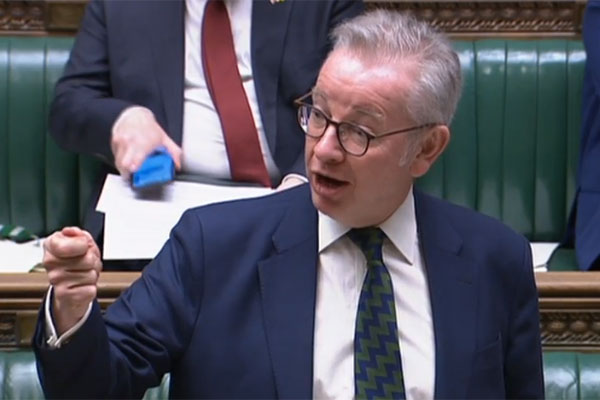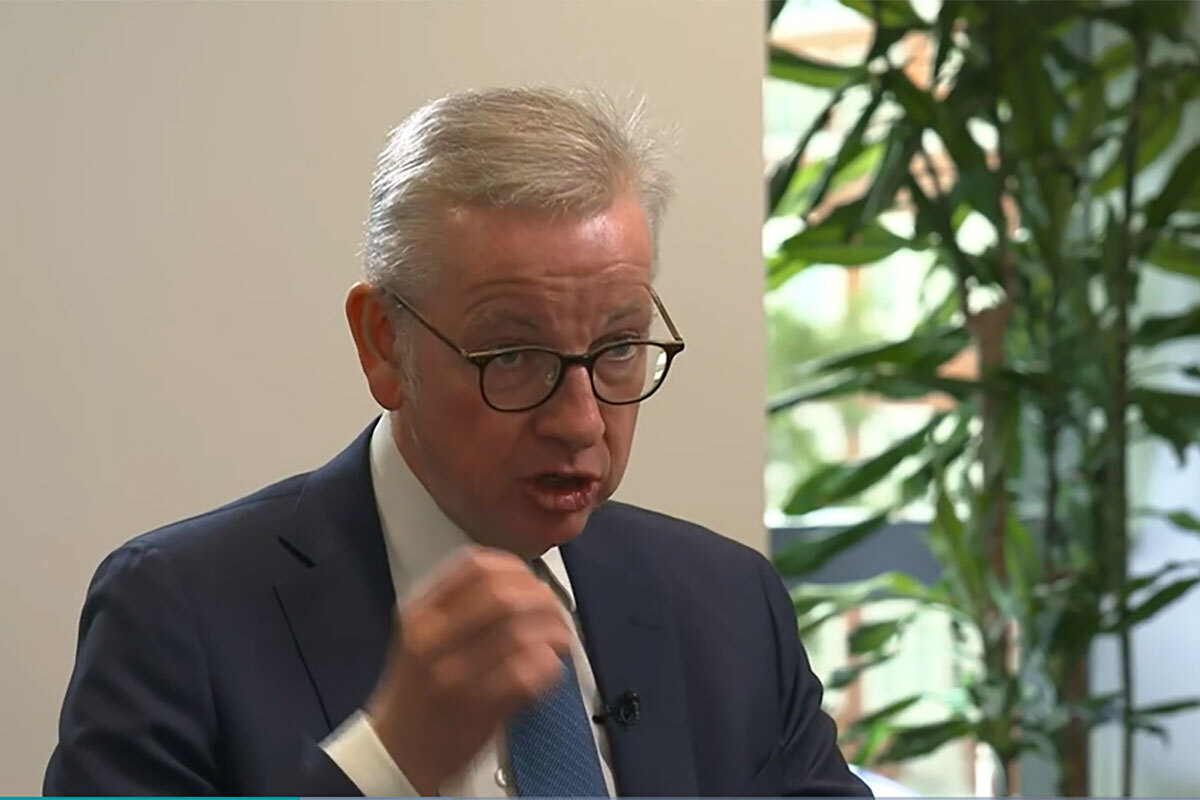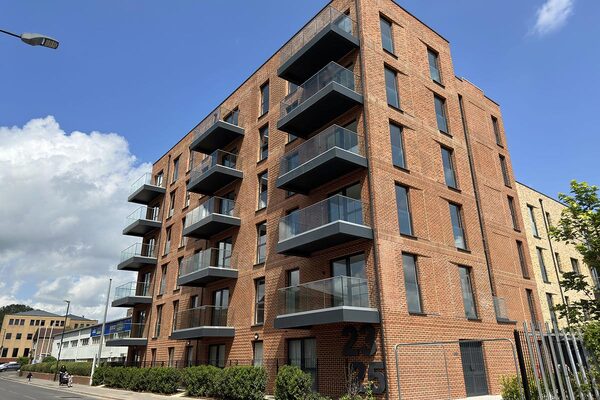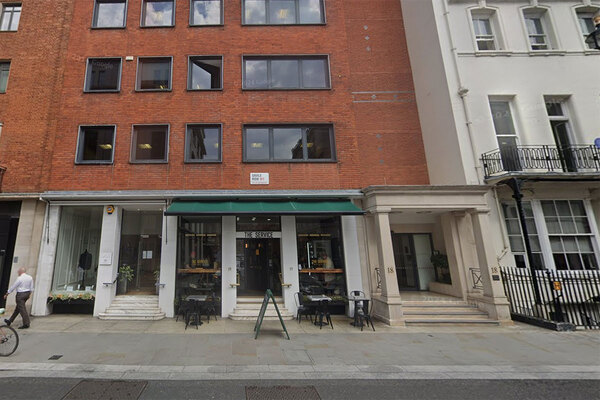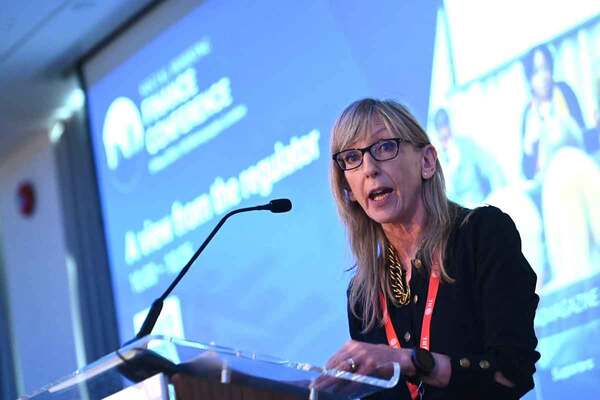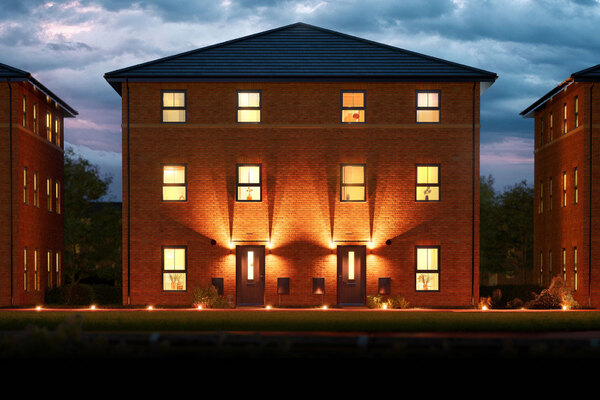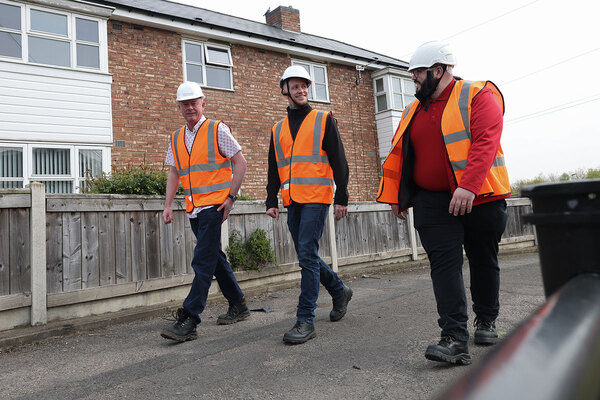You are viewing 1 of your 1 free articles
Local plan reform and hike in developer fees part of PM’s promise to deliver on one million-home manifesto commitment
The housing secretary has outlined a number of plans aimed at hitting his government’s manifesto commitment to build one million homes by the end of this parliament.
Michael Gove this morning set out new measures that he hopes will unblock the planning system and enable the building of more homes in the right places where there is local consent.
Developers will also be asked to contribute more through fees, to help support a higher-quality, more efficient planning service, and there will be a consultation on reforming local plans to make them simpler, shorter and more visual.
There will be a £24m Planning Skills Delivery Fund to clear backlogs and get the right skills in place.
This funding will be introduced alongside what is being dubbed as a “super-squad” by the government, a team of leading planners and other experts charged with working across the planning system to unblock major housing developments.
Mr Gove said the team will first be deployed in Cambridge “to turbocharge our plans in the city”.
That is despite opposition from local councillors and MPs who told Inside Housing they had been left “in the dark” over the major growth plans for the city, which includes 250,000 new homes.
Other measures include new flexibilities to convert shops, takeaway restaurants and betting shops into homes, which will help to rejuvenate the high street, Mr Gove said.
Meanwhile, planning restrictions will be eased to enable barn conversions and the repurposing of agricultural buildings and disused warehouses into housing.
Councils, however, warned that the extension of these ‘permitted development rights’ would result in poor-quality housing – as has been the case with ‘office-to-residential’ powers introduced in 2013.
Housing association trade body the National Housing Federation added that “there is also nothing in this announcement about investing in social housing which is sorely needed”.
New freedoms to extend homes, convert lofts and renovate new buildings will help to convert existing properties into new accommodation, the government said.
A review into the extension of permitted development rights will make it easier for homeowners to build upwards and outwards – with new extensions and loft conversions – while ensuring that neighbours’ interests are protected.
The housing secretary also announced a new body called the Office for Place to help lead “a design revolution” and ensure local people have a say in how housing is designed.
Mr Gove said: “Most people agree that we need to build more homes – the question is how we go about it. Rather than concreting over the countryside, we have set out a plan today to build the right homes in the right places where there is community support – and we’re putting the resources behind it to help make this vision a reality.
“At the heart of this is making sure that we build beautiful and empower communities to have a say in the development in their area.”
Mr Gove made the announcement after prime minister Rishi Sunak reiterated his party’s commitment to build one million new homes over this parliament on Sunday.
Mr Sunak said: “We need to keep going because we want more people to realise the dream of owning their own home.
“We won’t do that by concreting over the countryside – our plan is to build the right homes where there is the most need and where there is local support, in the heart of Britain’s great cities.
“Our reforms today will help make that a reality, by regenerating disused brownfield land, streamlining planning process and helping homeowners to renovate and extend their houses outwards and upwards.”
Shaun Davies, chair of the Local Government Association, said: “There is no doubt that we need more homes as well as to reinvigorate our high streets and town centres. However, premises such as offices, barns and shops are not always suitable for housing.
“Further expanding permitted development rights risks creating poor-quality residential environments that negatively impact people’s health and well-being, as well as a lack of affordable housing or suitable infrastructure.
“It is disappointing that the government have ignored their own commissioned research that concluded that homes converted through a planning application process deliver higher-quality homes than those converted via permitted development rights. The proposals are also at odds with their ambitions to give local communities greater control over developments where they live.
“Building the homes the country needs should be delivered through a locally led planning system, and in the right places supported by the right infrastructure. Only this ensures a mix of high-quality, affordable housing that meets the needs of local communities, while also giving those communities the opportunity to shape and define the area they live in.”
Rhys Moore, director of public impact at the National Housing Federation, said: “We have been calling for a long term plan for housing and whilst this is a positive start, it is nowhere near the scale or ambition that is needed.
"We have a massive housing crisis on our hands with one in six children living in overcrowded homes and 4.2 million people in need of social housing. We welcome the commitments to planning interventions however this is relatively piece meal given the challenge we face.
“There is also nothing in this announcement about investing in social housing which is sorely needed. We have a chronic shortage of social homes in this country, caused by decades of underinvestment by successive governments and this has exacerbated the rental crisis and increased house prices.
“Last year we only built around 6,500 social rented homes compared to the 90,000 a year that are needed. We need a strategic, nationally coordinated and properly funded long-term housing plan, focused on drastically increase social housing across the country, which this is not.”
Sign up for our daily newsletter
Already have an account? Click here to manage your newsletters
